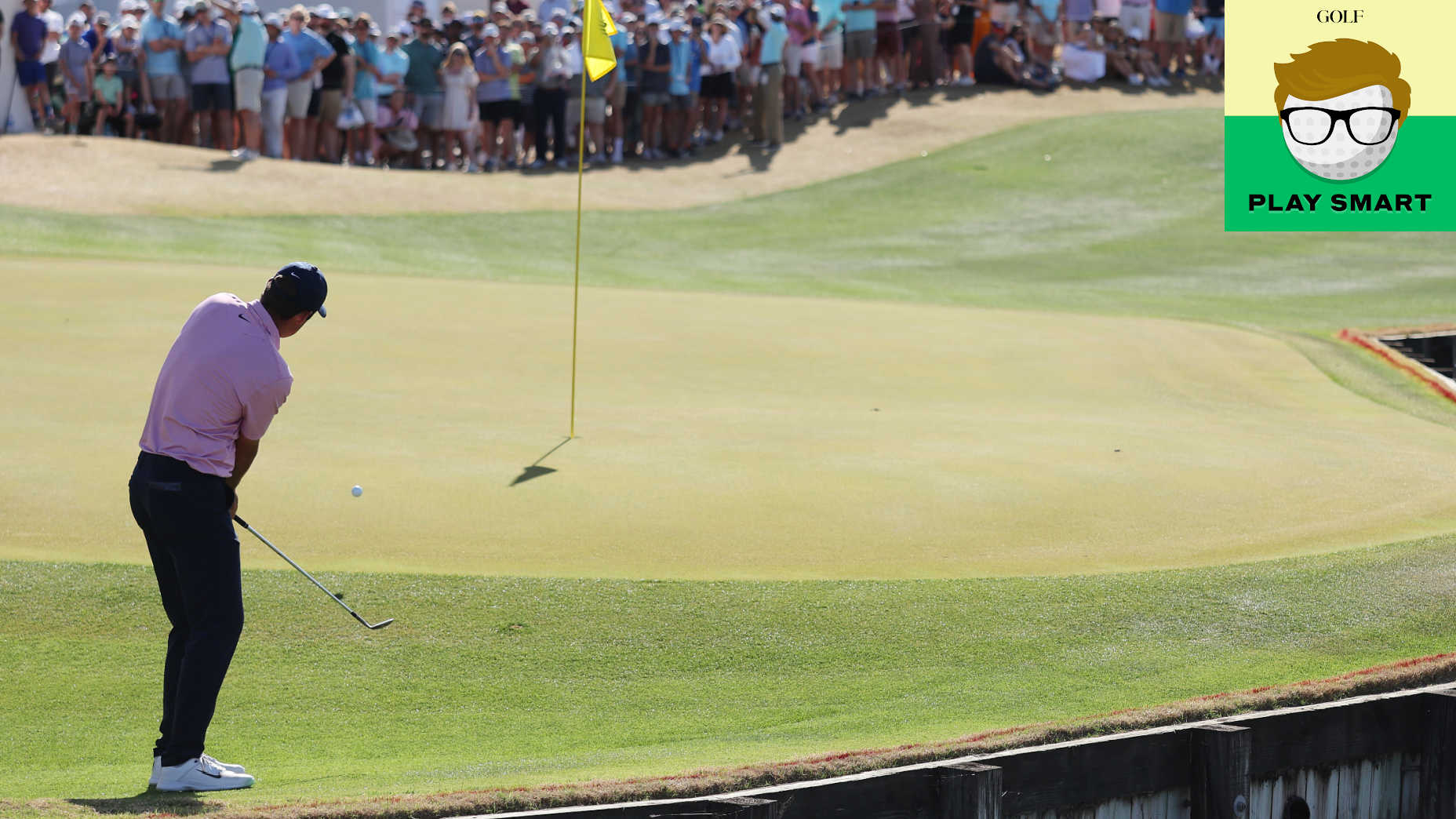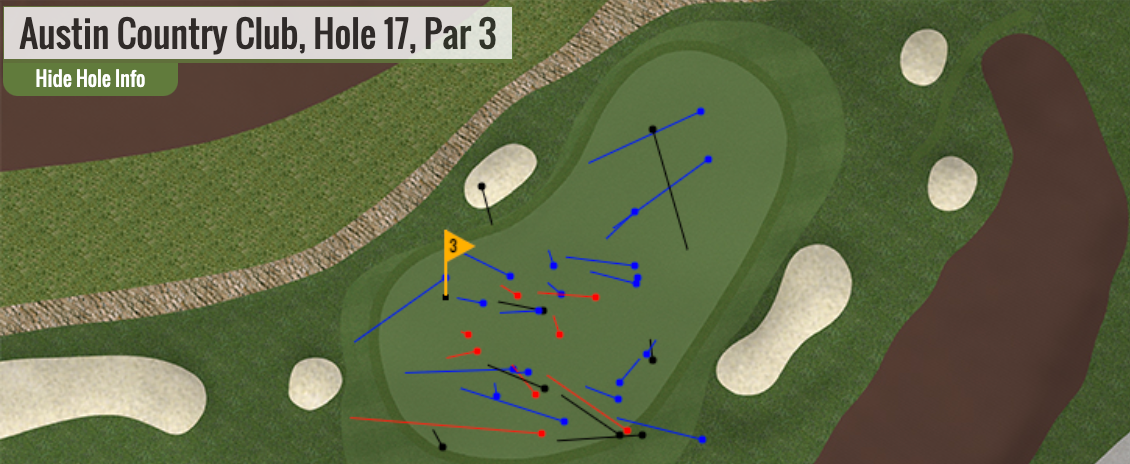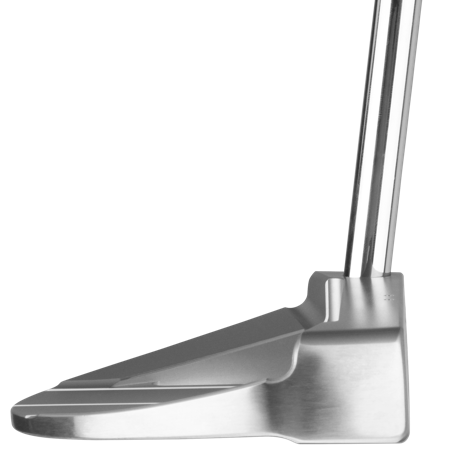
It’s a mistake amateur golfers make that pros almost never do: missing short to a front pin.
Getty Images
Welcome to Play Smart, a game-improvement column that drops every Monday, Wednesday and Friday from Game Improvement Editor Luke Kerr-Dineen (who you can follow on Twitter right here).
One of the reasons pros are pros is because they learn to avoid the silly mistakes that make the rest of us worse.
Yes, it’s true that pro golfers swing the club incredibly fast, with remarkable consistency, and send the ball into the distance with astonishing accuracy. But we make a lot about pro golfers being elite-level swingers of the club, and along the way overlook how they’re also elite-level golf thinkers.
Let’s take an example from last week’s event, the WGC Match Play.
The 17th hole at Austin Country Club, on paper, is a fairly innocuous one: a 150-yard par-3. During round three of group play, the pin was placed way front left, which meant the hole was playing a paltry 123 yards.
You’d be forgiven for thinking that pin location puts this pin firmly in the go zone, as 123 yards is little more than a flip gap wedge for most players. The tour average from this range is about 20 feet, and this is a field limited to the best players in the world.
And yet what we saw were players aiming almost exclusively away from the pin. Most shots were landing north of 130 yards, long-right of the pin, leaving them a putt in the 28-foot range.

Even with a flip wedge, pros were aiming away from the pin.
Shotlink
Why? Because even though they had an easy wedge in their hands, pros refused to be lured into flirting with the thing they absolutely could not do: miss short left in the brush. This may have been a great opportunity to chase a kick-in birdie, but priority No. 1 remained unchanged: hit the green, and give yourself a putt.
That’s a stark contrast from what amateurs do in this situation, and it’s a lesson we would be well-served to avoid.
The trap: Missing short to a front pin
As you can see from the Arccos infographic below based on its own data, even for the best amateur golfers among us, when the pin is placed up front golfers only hit the green about half the time.
The reason for this is two-fold: amateur golfers tend to under-club themselves and miss short of their target. This mistake is particularly exposed when the pin is at the front of the green, because golfers will jump at the opportunity to hit a shorter club. Then, when they hit their ball less than they expect, their ball ends up short — wasting all that open green sitting past the pin.
By contrast, when the pin is back of the green, golfers are almost fooled into making the correct decision. They hit the club based on the number to the pin, and when they miss short of their target, often grab a piece of the putting surface anyway. Even though it’s a longer distance, the GIR-rate is better.
So the next time you’re on the golf course and seeing a pin at the front of the green tempting you, remember this blog post describing what the pros do. Play toward safety. Aim for the fattest part of the green, and hit the club that will get you there — wherever the pin may be.
You’ll end up hitting more greens, and who knows, you may even hole a putt at the end of it.










